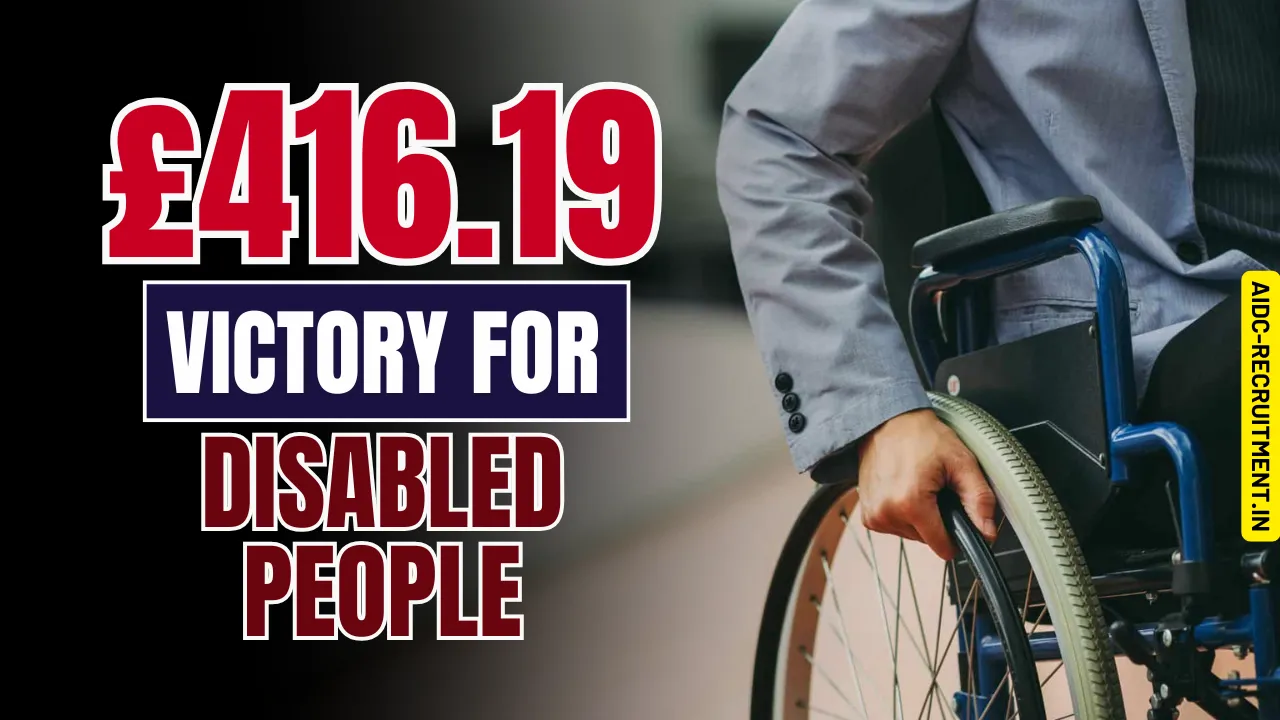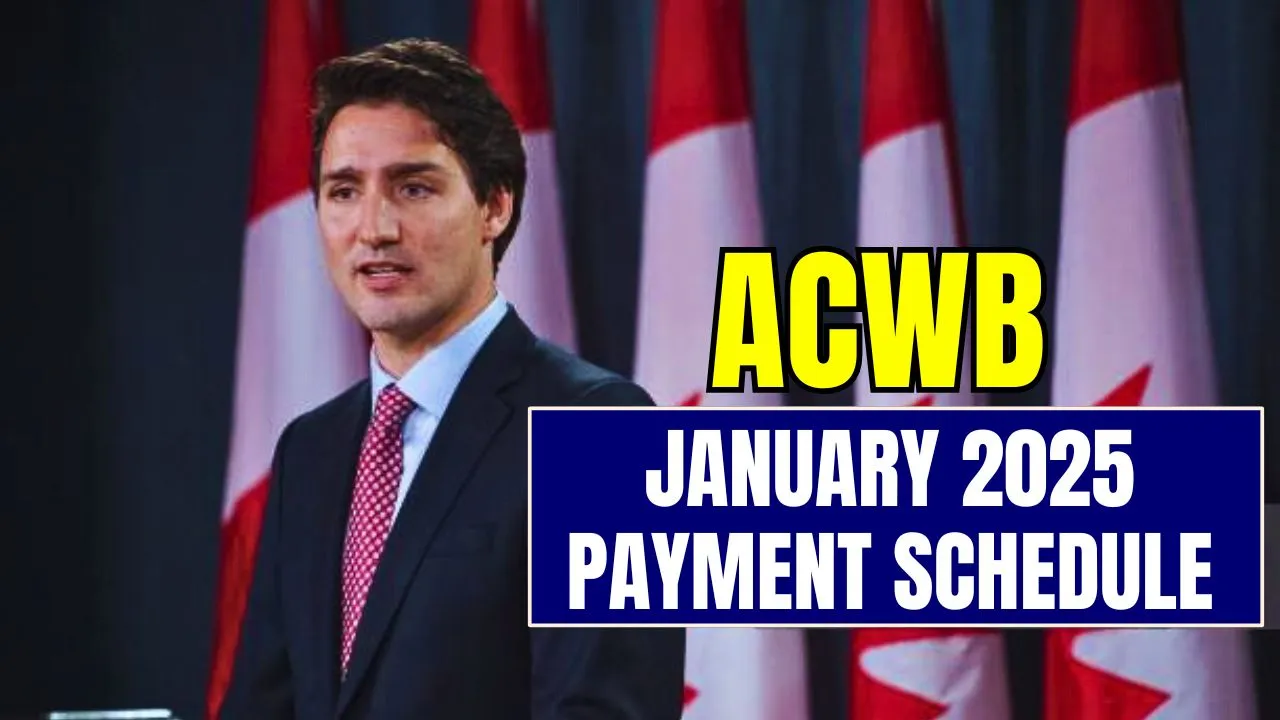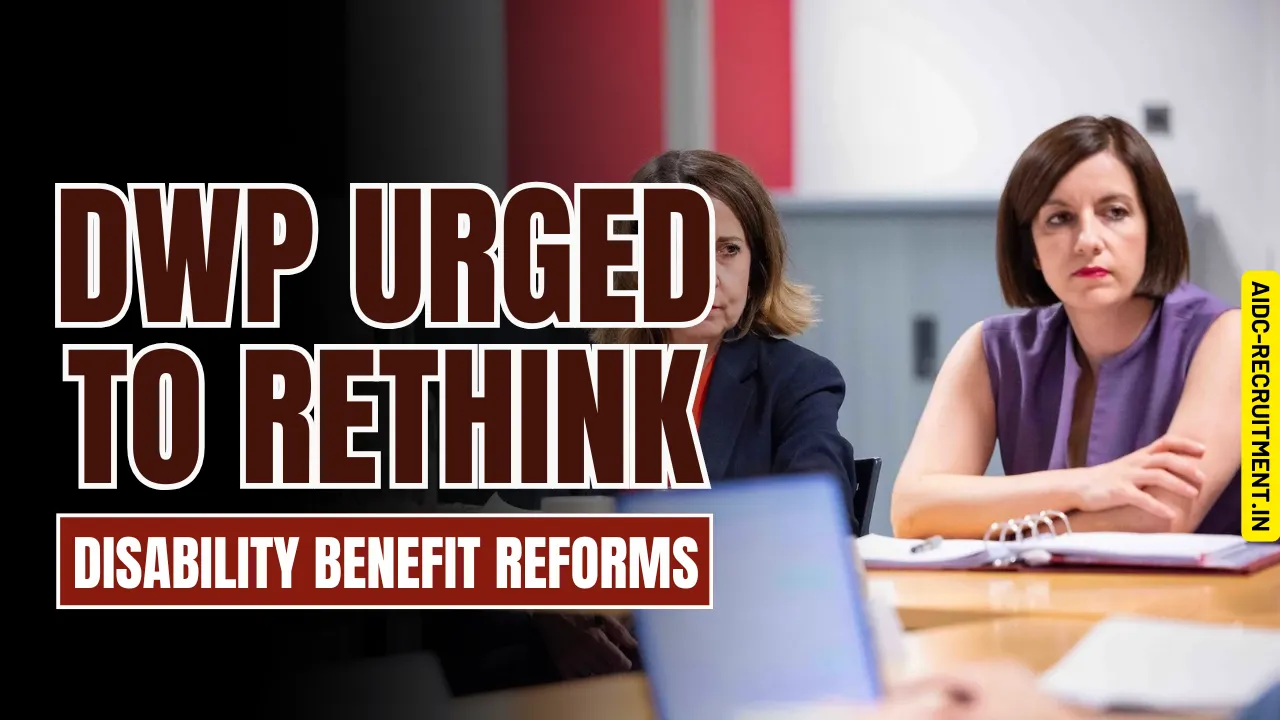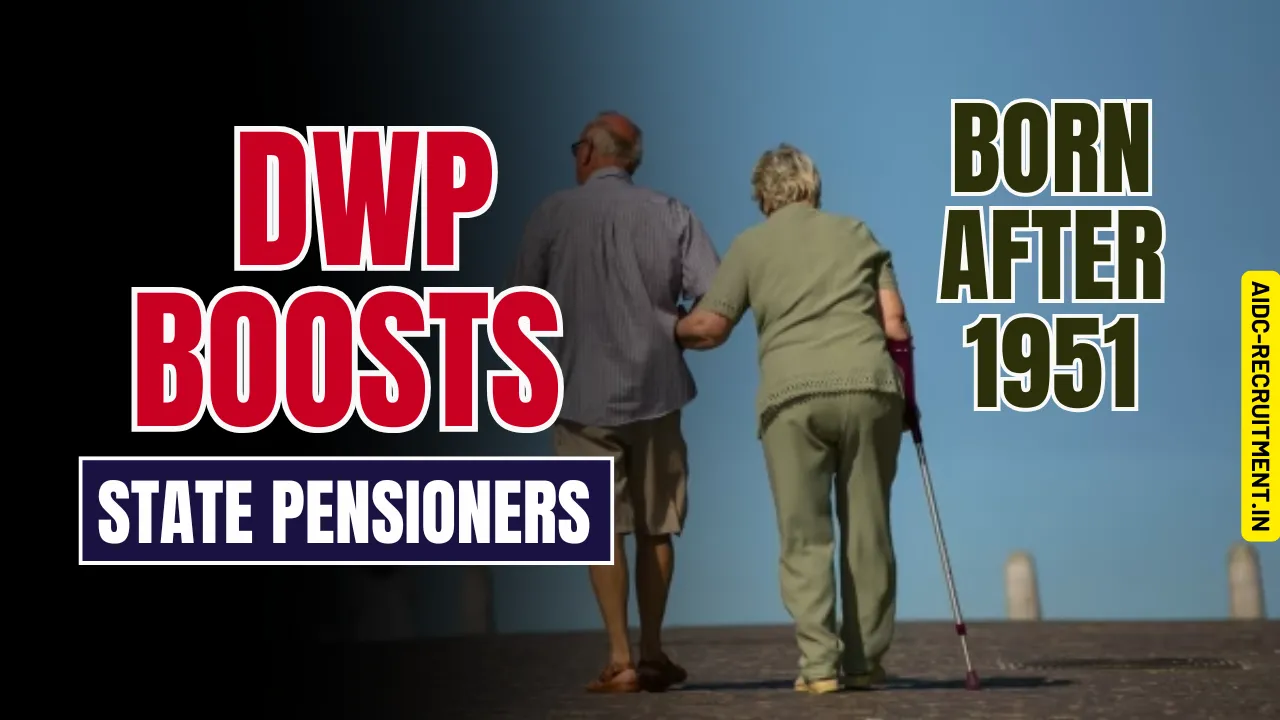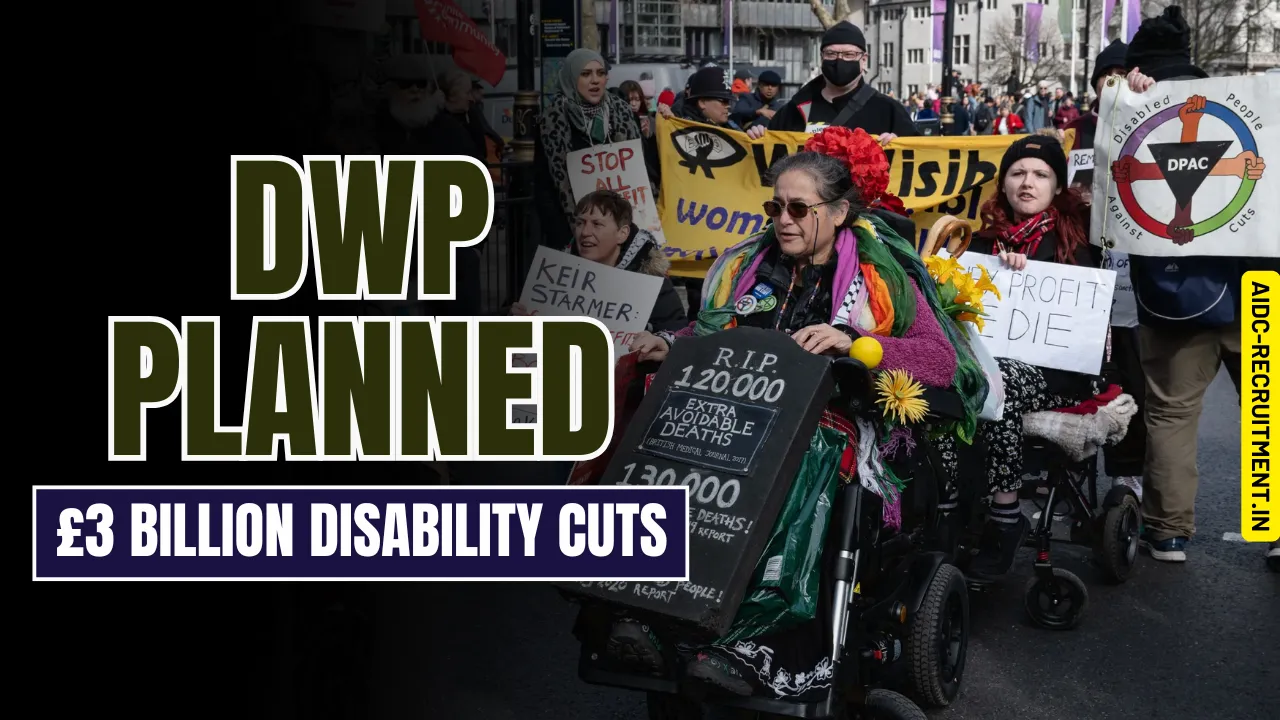£416.19 Victory for Disabled People: The £416.19 victory for disabled people is a landmark moment in the fight for fair and transparent disability welfare policies. The High Court recently ruled that the Department for Work and Pensions (DWP) acted unlawfully in its consultation process for proposed disability benefit reforms. These reforms, initially presented as a means of helping disabled individuals transition into work, were revealed to be cost-cutting measures designed to save £3 billion.
This article explores the details of the court ruling, the proposed reforms, and their potential impact on disabled individuals. We will also delve into the reactions from campaigners, unions, and legal experts, and consider what this victory means for the future of disability rights in the UK.
Key Facts at a Glance
| Aspect | Details |
| Ruling | High Court declared the DWP’s consultation process unlawful and misleading. |
| At-Risk Individuals | 424,000 disabled claimants faced losing £416.19 monthly. |
| Savings Goal | £3 billion by 2028. |
| Consultation Duration | Less than eight weeks, deemed insufficient by the court. |
| Legal Challenge Leader | Ellen Clifford, supported by the Public Law Project. |
| Risks Identified | 100,000 individuals could be pushed into absolute poverty by 2026/27. |
Key Findings of the High Court
Misleading Consultation Process
The High Court found the DWP’s consultation process deeply flawed. The government had presented its proposed reforms as a way to empower disabled people by supporting their journey into employment. However, the court uncovered that the main focus was on reducing welfare spending, with an estimated 424,000 people facing significant financial losses.
The consultation failed to clearly communicate the impact of the changes, such as the potential loss of £416.19 per month for claimants. The eight-week consultation period was also criticized as being far too short, given the wide-ranging implications of the reforms.
The Impact of Proposed Reforms
The Disability Benefit Reforms sought to impose stricter conditions for receiving benefits. Key changes included transitioning voluntary work-related activities into mandatory requirements and introducing penalties for non-compliance.
Consequences for Disabled People
- Financial Hardship: The reforms would have left 424,000 disabled individuals worse off financially, significantly affecting their ability to cover basic living costs.
- Poverty Risks: Internal DWP documents revealed that nearly 100,000 vulnerable claimants could be pushed into absolute poverty by 2026/27 if the reforms were implemented.
- Increased Stress for Claimants: Many disabled individuals, especially those with mental health conditions, would face heightened stress due to the added pressure of meeting stricter benefit conditions.
These findings highlight the disconnect between the government’s claims about the reforms and their actual impact on the disabled community.
Lack of Transparency and Fairness
A central criticism of the DWP’s approach was its lack of transparency. The consultation process framed the reforms as a way to assist disabled people in entering the workforce, yet internal documents revealed this was not the primary goal.
Key Failures
- No Proper Impact Assessments: The government did not conduct thorough employment, equality, or disability impact assessments before launching the consultation.
- Ignored Warnings: Civil servants warned that the reforms could worsen the well-being of individuals with mental health issues, yet these concerns were largely disregarded.
- Misrepresentation of Goals: To make the reforms appear less controversial, the DWP included non-cost-saving measures in the consultation, creating the illusion that the focus was on helping disabled people.
These revelations further damaged the credibility of the consultation process and underscored the need for greater accountability in welfare policymaking.
Ellen Clifford’s Legal Challenge
The judicial review was brought forward by disability rights campaigner Ellen Clifford, with legal support from the Public Law Project. Clifford argued that the consultation process was unfair, inaccessible, and failed to engage adequately with disabled individuals who would be most affected by the changes.
“This is a life-or-death issue,” Clifford stated, celebrating the court’s decision. She highlighted that the reforms had the potential to devastate the lives of thousands of disabled people, particularly those already struggling to make ends meet.
The case also revealed the government’s internal acknowledgment of the severe risks posed by the reforms, adding further weight to Clifford’s arguments.
Public and Legal Reactions
Legal Experts’ Views
The Public Law Project, which represented Clifford, welcomed the ruling as a critical step toward ensuring fairness in government policymaking. Lawyer Aoife O’Reilly stated:
“This judgment vindicates our concerns about the DWP’s unlawful consultation. The government must now focus on genuine reforms that prioritize the rights of disabled individuals.”
Reactions from Advocacy Groups
Disability rights organizations widely celebrated the decision:
- Inclusion London criticized the DWP’s lack of transparency and urged the government to respect the UN Convention on the Rights of Disabled People.
- Disabled People Against Cuts (DPAC) warned the government against attempting to reintroduce similar reforms, emphasizing that activists would continue to fight for fair policies.
- The UK DDPO CRPD Monitoring Coalition called for a collaborative approach to welfare reform, involving disabled individuals in meaningful consultations.
Union Support
The Public and Commercial Services Union (PCS), which represents DWP staff, also condemned the reforms. The union supported the court’s decision and called for a more thoughtful approach to welfare changes that genuinely address the needs of claimants.
Revealing Internal DWP Documents
The court case shed light on several internal DWP documents that painted a troubling picture of the government’s priorities:
- Civil servants had flagged the significant risks to claimants’ mental health and overall well-being.
- No meaningful assessments were conducted to evaluate the potential impact of the reforms on employment outcomes or equality.
- The reforms were deliberately framed as supportive measures, despite being primarily aimed at cost-cutting.
These findings fueled public outrage and reinforced calls for greater transparency and accountability in future consultations.
What Happens Next?
The High Court ruling has left the government with limited options. Disability rights campaigners and advocacy groups are urging policymakers to abandon the proposed reforms entirely and focus on developing policies that genuinely support disabled individuals.
Key demands include:
- Conducting transparent and inclusive consultations that prioritize the needs of disabled claimants.
- Engaging meaningfully with advocacy groups and affected individuals to create fairer policies.
- Ensuring that any future reforms undergo thorough impact assessments to avoid unintended consequences.
While the government has not yet confirmed its next steps, the ruling serves as a powerful reminder of the importance of fairness and honesty in policymaking.
FAQs
What did the High Court rule about the DWP’s reforms?
The court found that the DWP’s consultation was misleading, rushed, and failed to disclose the true financial impact on claimants.
How would the reforms have affected disabled individuals?
Around 424,000 claimants would have seen reductions in benefits, with many losing at least £416.19 per month.
Why was the consultation deemed unlawful?
The consultation period was too short, and the DWP failed to provide evidence that the reforms would help disabled people find work.
What did internal DWP documents reveal?
The documents showed that the government prioritized cost-cutting over supporting disabled people, without conducting proper impact assessments.
What happens now?
Campaigners are urging the government to abandon the reforms and conduct a transparent, fair consultation process for future policies.
Conclusion
The £416.19 victory for disabled people is a monumental achievement in the ongoing fight for justice and fairness in disability welfare policies. The High Court’s ruling has exposed the flaws in the DWP’s consultation process and reinforced the need for transparency, accountability, and inclusivity in policymaking.
As the government reassesses its approach, it has an opportunity to prioritize the voices and needs of disabled individuals. Share your thoughts on this landmark case in the comments and stay updated on future developments in disability rights.
